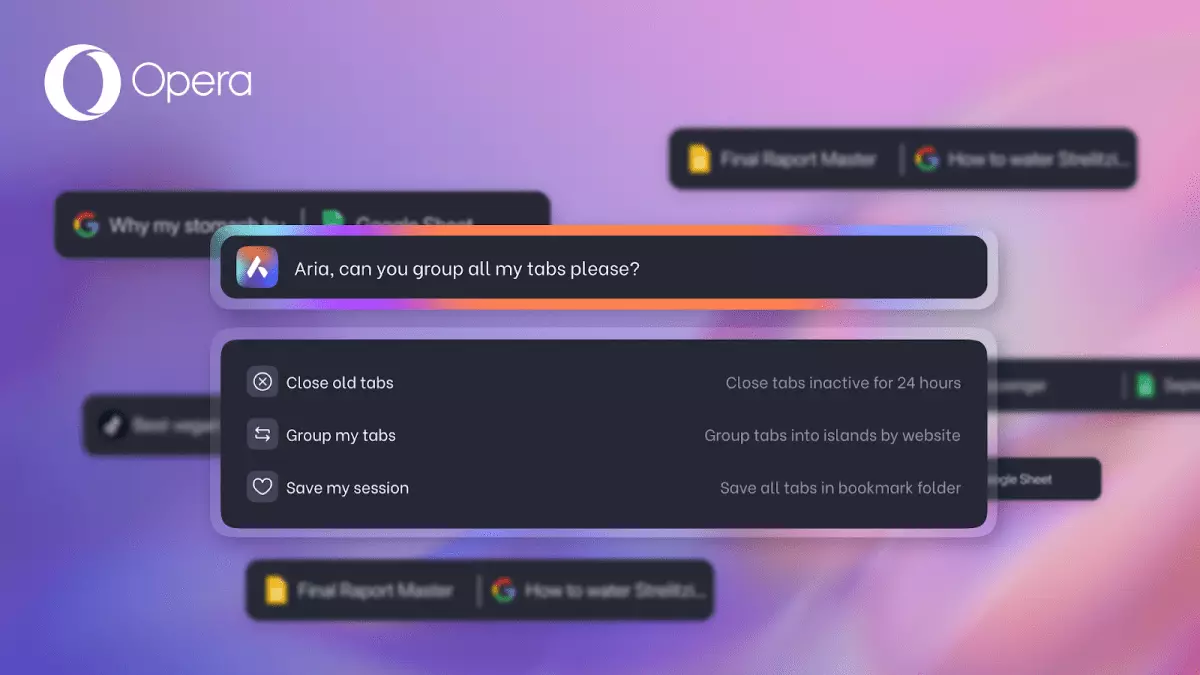In an increasingly digital world, managing browser tabs has become a necessity rather than a choice. Opera, a pioneer in web browsing innovation, is taking significant strides by introducing an AI-driven feature designed to enhance user experience. This new tool not only empowers users to take charge of their browsing environment through natural language commands, but it also marks a noteworthy shift in how we interact with technology—making it more intuitive and user-friendly.
At the core of this development lies the Aria command bar, which operates seamlessly within the browser. By simply pressing Ctrl + / or Cmd + /, users can issue commands that range from simple requests, like “Group all video tabs,” to more specific tasks like “Close my YouTube tabs.” This feature is particularly beneficial for users who tend to juggle multiple tasks simultaneously, as it allows them to streamline their workspace efficiently. Ensuring that all processing is conducted on the client side, Opera guarantees that user data remains secure and private, a significant advantage in today’s privacy-conscious climate.
The overwhelming nature of a cluttered tab bar can hinder productivity, leading to frustration and distraction. Opera’s AI feature acts as a smart assistant, enabling users to declutter their digital space effortlessly. For those who frequently navigate between work-related tasks and leisure browsing, this tool facilitates a more organized workflow, allowing for a clear separation of contexts. Even for individuals who maintain hundreds of open tabs, the ability to group or close them using simple commands significantly enhances the overall browsing experience.
The introduction of AI in tab management sets Opera apart from other browsers that primarily employ AI for tasks such as summarizing content or responding to queries. While those functionalities are undoubtedly useful, Opera’s focus on improving the everyday browsing experience signifies a shift in how web browsers can evolve. The launch of this feature follows a previous innovation, “Tab Islands,” where tabs are automatically categorized based on context, further illustrating Opera’s commitment to making browsing more user-centric.
While currently available in the developer version, the potential for this AI-driven feature to reach wider audiences is promising. If Opera can successfully integrate this capability into its standard browser, it may cause a paradigm shift in user behavior and expectations. The emphasis on natural language commands could revolutionize how users interact with their browsers, leading to smarter, more efficient online experiences.
Opera’s quest to integrate AI into its browser functionality exemplifies a forward-thinking approach, aiming to simplify the often chaotic world of web browsing. As users increasingly demand tools that are not only powerful but also intuitive, features like the Aria command bar represent a significant advancement in browser technology. With this innovation, Opera is poised to shape the future of how we navigate the digital landscape, standing as a testament to how technology can adapt to better serve its users.

